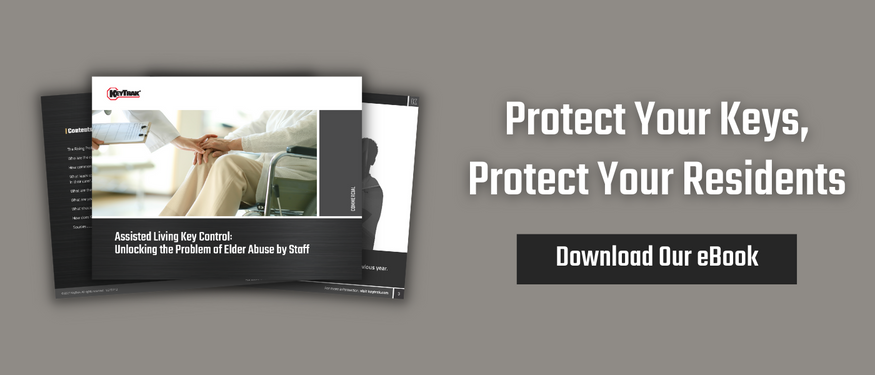Senior citizens are among the most vulnerable members of our society. Approximately 10% of Americans over 60 have experienced financial, physical, or psychological abuse. It’s no wonder, then, that assisted living facilities rely on the special trust of their residents and their residents’ families to operate successfully and provide quality care.
Few things are more disturbing than elder abuse, and if your facility earns a reputation as being unsafe, you’re likely to see a wave of departures as well as probable legal consequences. Assisted living facilities go under due to the financial strain of events like this all the time, and the truth is many instances of theft and abuse are entirely avoidable — if you’re willing to invest in an effective key control solution ahead of time.
Are You Leaving Residents Vulnerable?
You may have already invested in measures to ensure your residents receive a high standard of care, from staff background checks to facility management software. However, key management is important because it involves managing access to areas of your facility that are only authorized for certain individuals, which directly affects the safety of your residents and their possessions.
What does key security look like at your facility? If you have a mindset of “We already lock up our important keys” or, even worse, “We’ve never had a problem with our keys before,” that’s exactly the kind of approach that opens you up to liability. Key misuse can go unnoticed for a long time, and without a reporting tool or regular audits in place, there’s no telling how long it will take you to realize you have a problem.
Manual logbooks that depend on the honor system to work and are susceptible to human error and give you little recourse for ensuring accountability among your staff. Also, remember that if you have a high level of staff turnover — as is often the case in this industry — there will be inevitable training gaps if you’re constantly teaching new hires tedious manual processes. Finally, if you leave your keys on a pegboard in a publicly accessible area, they're the opposite of secure.
Indeed, there are many horror stories of staff or others abusing keys to steal from or inflict abuse on residents. For example, a maintenance man was caught going through a resident's purse. In a separate case, a housekeeper stole $45,000 in jewelry from residents over the course of a year and had her husband sell it.
Again, your lack of effective key control means you could be responsible for leaving your residents vulnerable.
What Does Effective Key Control Look Like?
Let’s start with eliminating outdated, manual processes in favor of an electronic system. Such a system would:
- Secure keys in a locking, computerized steel drawer behind a series of authentication measures.
- Automatically track access to hold your employees accountable and ensure keys are returned promptly.
- Offer an intuitive and convenient interface to speed up and simplify new hire training.
- Notify residents and/or their family members via email when a key is checked out.
- Create a verifiable audit trail.
Implementing this kind of key control solution accomplishes several things at once:
- It ensures that no unauthorized individuals gain access to keys.
- It introduces real accountability for anyone using a key.
- It provides you with a record of key activity so you can follow up quickly on any issues.
Most importantly, effective key control helps protect your residents’ safety and belongings, and shields your facility from significant legal and financial jeopardy.
Your residents deserve the highest standard of care and safety, and it’s in the interest of your business to provide that standard. You can take a big step in that direction right now by investing in an effective key control solution that can help you avoid potential disaster and head off painful liability down the road.
This post was originally published in 2021 and updated in 2025.


